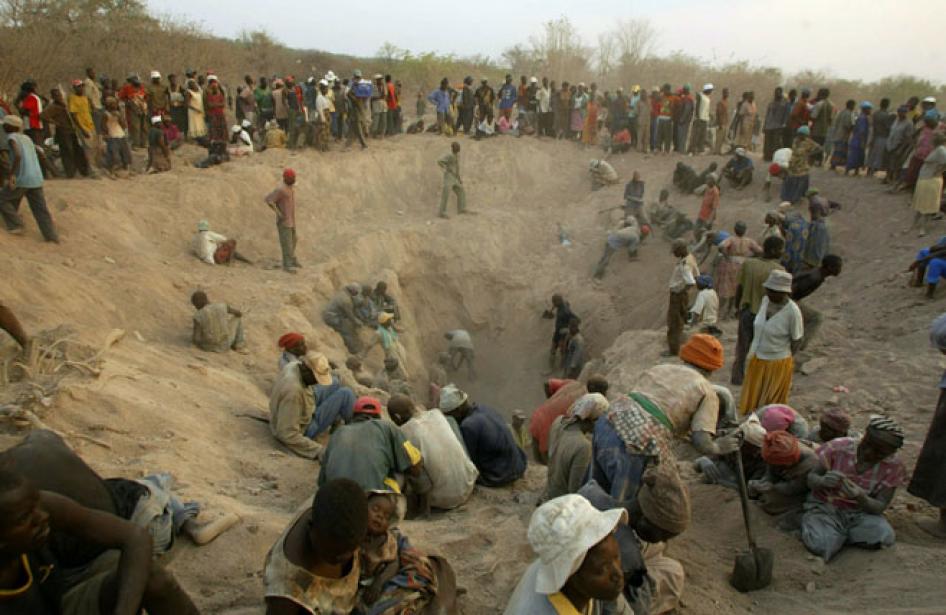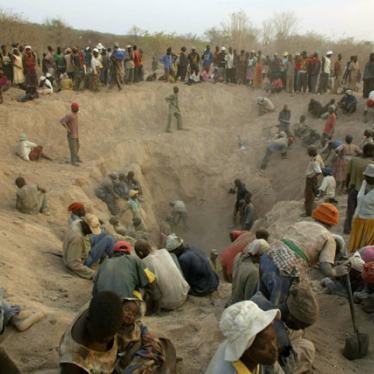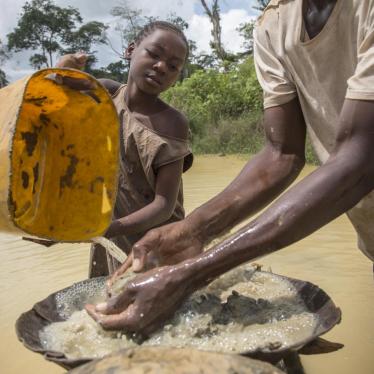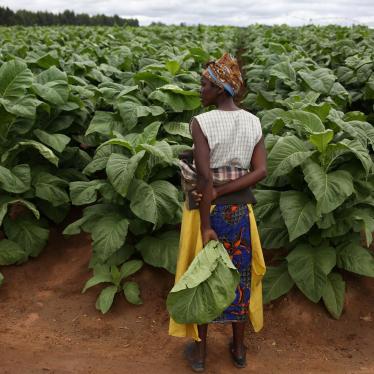It’s been almost two decades now since governments came together to end the trade in “blood diamonds” that were fuelling several brutal wars in Africa. They set up the Kimberley Process Certification Scheme, a system of export and import controls for rough diamonds.
But it’s clearer than ever that the Kimberley Process is not up to the task. The trade in diamonds still gives rise to serious human rights violations.
Take what’s happening right now in the Marange diamond fields, eastern Zimbabwe. Residents living near the diamond fields have suffered forced labor, torture, and other abuses. Just two weeks ago, protests by villagers against the alleged looting of diamond revenue by state-owned companies turned violent. Residents say that security force personnel beat women with batons, fired live ammunition into the air, and fired tear gas canisters—resulting in three children being hospitalized.
Many Marange residents feel harassed by authorities, who have declared the Marange community a “protected area” where any visits by outsiders require special authorization, and have arrested several people caught without an identity document proving their residency in Marange. Private security officers employed by the diamond mining company in Marange, Zimbabwe Consolidated Diamond Company, have also used brute violence to deter local residents from mining diamonds, according to victims. One of the miners described his arrest: “The guards handcuffed me and my colleagues and ordered us to sit down. They set vicious dogs on us which mauled us for about 10-15 minutes as they watched, leaving us severely injured”.
The unfortunate reality is that diamonds tainted by abuse from Marange or elsewhere can still reach the global diamond market easily. Both governments and companies in the diamond supply chain are to blame for this.
The Kimberley Process is narrowly focused on curbing the trade of diamonds whose sale benefits armed groups—not abusive governments or their armed forces. So, it is not surprising that the Kimberley Process has authorized exports of Zimbabwean diamonds, although they were – and continue to be - mined under highly abusive conditions.
In addition, governments have failed to create an independent monitoring system to check if the necessary customs controls are in place. Finally, the Kimberley Process only applies to rough diamonds, allowing stones that are fully or partially cut and polished to fall outside the scope of the initiative.
Companies also have a responsibility to not contribute to human rights violations. To do this, they need to have due diligence safeguards in place to identify and respond to human rights risks throughout their supply chain.
Yet, many companies do not live up to these standards. Human Rights Watch recently scrutinized the diamond sourcing practices of 13 leading jewelry and watch brands.
The organization found that many companies don’t know where their gold and diamonds come from, and don’t do enough to assess human rights risks. In addition, jewelry and watch companies often publish limited information on how they address human rights risks in their supply chains.
The Kimberley Process should adopt a wider definition of “conflict diamonds” (to address abuses like those seen in Marange, and not just full-scale war), establish an independent monitoring system, and ensure more rigorous controls. And Jewelry companies, diamond traders, and cutters and polishers need to establish robust human rights due diligence—and require this from their suppliers, too.
The abuses unfolding in Marange are a huge stain on the diamond industry worldwide. Customers buy diamonds as a symbol of love, not violence, and jewelry companies should act to stamp out suffering.
Farai Maguwu is the director of the Centre for Natural Resource Governance, Zimbabwe.
Juliane Kippenberg is an associate director for child rights at Human Rights Watch.










